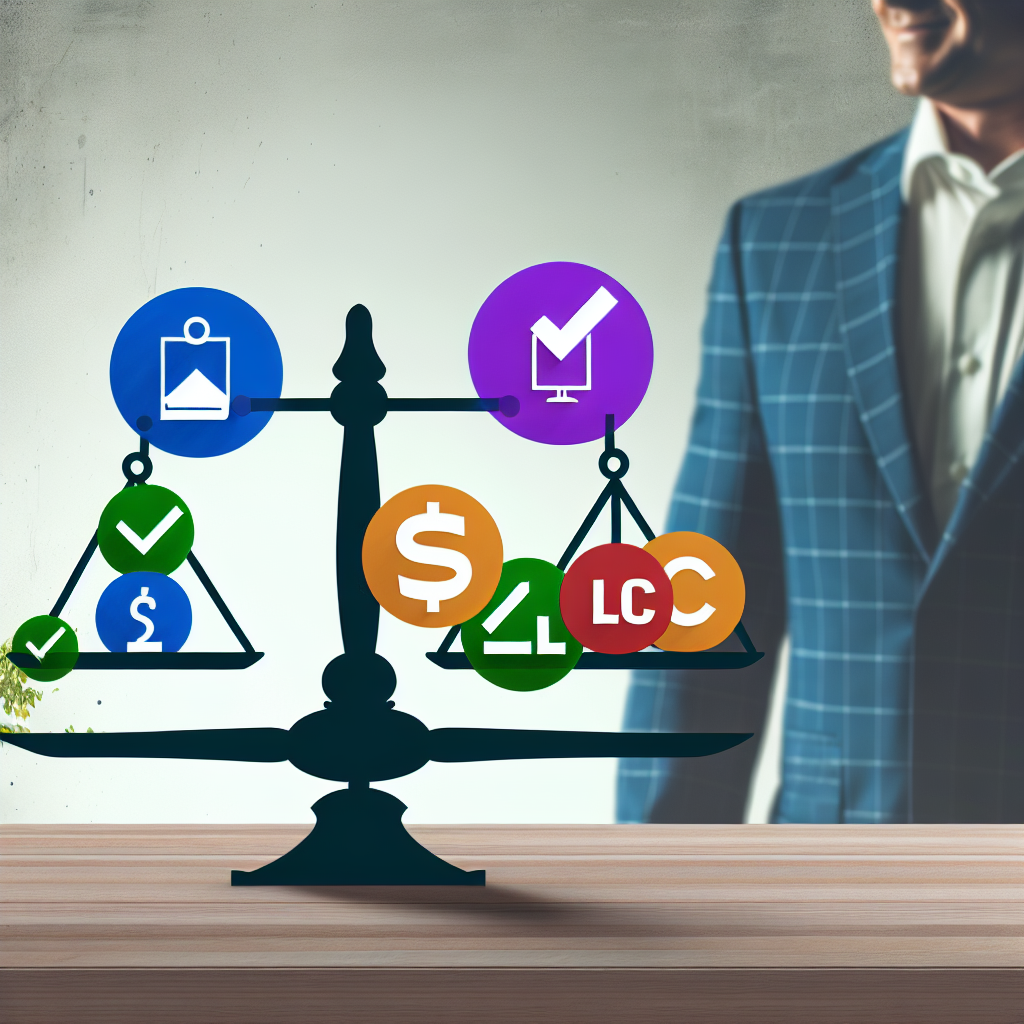
Startup Legal Foundations: Choosing the Right Entity
Introduction: Understanding the Importance of Choosing the Right Entity
When launching a startup, one of the most critical decisions founders must make is choosing the right legal entity. This choice affects various aspects of the business, including taxes, liability, and operational structure. In this article, we will explore the primary types of business entities available, the considerations that influence this decision, and how The Consultant Global can guide you in making the best choice for your unique circumstances. Understanding these legal foundations is essential for setting up your startup for success in a competitive market.
Why the Choice of Entity Matters
Deciding on the appropriate legal entity for your startup is not merely a bureaucratic step; it has far-reaching consequences that can affect your startup’s growth trajectory. Some key reasons why this decision is crucial include:
- Liability Protection: Different legal structures offer varying levels of personal liability protection for owners and shareholders.
- Tax Implications: Entity choice can significantly impact how your business is taxed, affecting profitability and cash flow.
- Funding Opportunities: Some entities are more attractive to investors, who may prefer the liability and tax structures of certain types of corporations.
- Operational Complexity: Different structures come with varying levels of regulatory requirements and complexity.
Types of Business Entities
1. Sole Proprietorship
A sole proprietorship is the simplest and most common business entity. It requires minimal paperwork and allows the owner complete control over the business. However, it comes with significant liability risks, as personal assets are not protected from business debts.
2. Partnership
A partnership is an arrangement where two or more individuals share ownership of a business. This structure allows for a pooling of resources and expertise but also exposes partners to shared liabilities. Key considerations include defining roles and responsibilities, profit-sharing, and how to handle disagreements.
3. Limited Liability Company (LLC)
An LLC combines the liability protection of a corporation with the tax flexibility of a partnership. Owners, also known as members, enjoy limited personal liability, and profits can be passed through to members without being taxed at the corporate level. This makes the LLC a popular choice for startups.
4. Corporation
Corporations are more complex entities that provide the highest level of liability protection. They are treated as separate legal entities from their owners, meaning shareholders are not personally liable for corporate debts. Corporations can raise capital through stock, making them attractive to investors. However, they are also subject to more rigorous reporting and compliance requirements.
5. S Corporation
An S corporation is a special designation that allows for pass-through taxation while maintaining the liability protections of a corporation. However, S corporations must meet specific criteria, including a limited number of shareholders and only one class of stock, which can restrict growth potential.
6. Limited Partnership (LP) and Limited Liability Partnership (LLP)
LPs and LLPs provide flexible partnership structures that consist of general and limited partners. General partners manage the business and assume full liability, while limited partners typically provide capital and have liability protection. LLPs, on the other hand, provide limited liability to all partners, making them a popular choice among professionals like lawyers and accountants.
Factors Influencing Your Decision
When choosing a legal entity for your startup, several factors should be taken into account:
- Business Goals: Consider what you want to achieve in both the short and long term. If you plan to seek significant outside investment, a corporation might be your best bet.
- Liability Concerns: Evaluate the risks associated with your business. If your industry involves high liabilities, protection through an LLC or corporation is advisable.
- Tax Considerations: Analyze how different entities will affect your personal and business taxes. Consult with a tax advisor for guidance on potential implications.
- Management Structure: Determine how much control you want over the business decisions and whether you prefer a simple or complex management structure.
- Funding Needs: If you anticipate needing outside funding, certain entities are more investor-friendly than others.
- Regulatory Environment: Consider the regulatory obligations associated with each entity type in your industry and jurisdiction, particularly if you plan to expand internationally.
The Role of The Consultant Global
At The Consultant Global, we understand the complexities involved in making the right business entity choice. Our extensive and unique experience in consulting services allows us to assess your specific needs accurately. We are committed to becoming your trusted advisors, taking your business to the best possible level.
With our multi-language capabilities, including fluency in English, Turkish, Azerbaijani, Russian, and French, and our experience working in diverse cultural environments, we are uniquely positioned to cater to clients in the GCC and UAE. By considering multi-cultural perspectives and inclusive practices, we can help businesses navigate the legal landscape efficiently.
Our client portfolio includes leading companies globally, including major players in the GCC. We pride ourselves on delivering tailored solutions, ensuring that each engagement adds significant value. At The Consultant Global, we focus on understanding your vision and developing a framework to achieve it efficiently and effectively.
Conclusion: The Path Forward
Choosing the right legal entity is a fundamental step that can determine the future of your startup. It requires careful consideration of various factors, including liability, taxation, and funding opportunities. By leveraging The Consultant Global’s expertise and understanding of the legal landscape, you can make an informed decision that aligns with your business goals.
We invite you to reach out to us for a consultation, where we can guide you through this critical choice and help you establish a solid foundation for your startup’s long-term success.




Leave a Reply